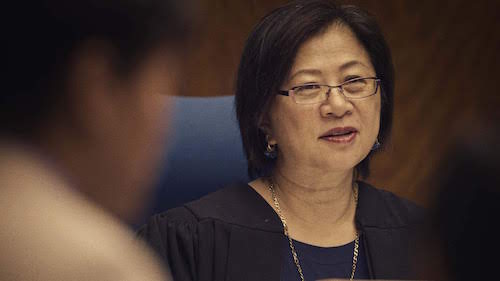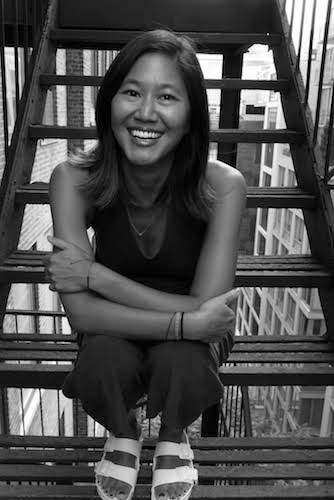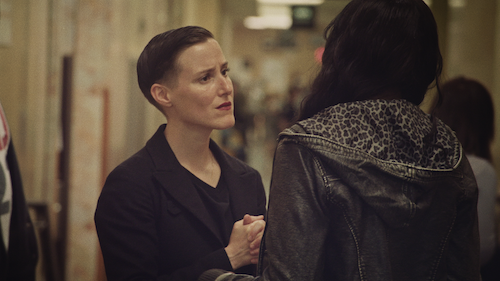Communiqué
“Blowin’ Up” on POV | Monday, October 21 at 10
< < Back to“It’s called blowin’ up when you leave your pimp…so i blew up.” -Kandie

In 2004, the United States’ first problem-solving court around prostitution was created in Queens County, New York. The court, presided over by the Honorable Toko Serita, attempts to redress the way women and young girls arrested for prostitution are shuffled through the criminal justice system.
With unparalleled access to the workings of the court, BLOWIN’ UP captures what it feels like to go through these criminal proceedings as a female defendant. The overwhelming majority of women arrested are undocumented Asian immigrants, black, Latina and transgender youth. As the film unfolds, we hear directly from these women, in their own words, and we begin to understand the complex scenarios that bring them into the courtroom.

Never do we hear the words “sex worker” or “prostitute” spoken in the courtroom. Instead, Judge Serita and the court try to create a safe space for these women within the confines of a legal system where sex work and prostitution are criminalized. The question asked over and over by defense teams and social workers is: Why are these women arrested in the first place? As the film progresses, and a new administration takes over in the White House, the courtroom’s fragile ecosystem is tested and the fates of those who pass through become less certain.
Through Wang-Breal’s patient filmmaking, these women slowly come into focus to reveal the interplay of the larger forces at work in their lives. A decidedly people-focused film, BLOWIN’ UP exposes us to how individuals can work together to create more humane ways to navigate an inhumane criminal justice system and allows us to witness this unique environment as an unfiltered, immersive experience.

ABOUT THE PRODUCTION
In October 2014, filmmaker Stephanie Wang-Breal came across an article in TheNew York Timesabout the Queens Human Trafficking Intervention Court (QHTIC), which wasmarking its tenth anniversary as an innovative alternative to the traditional model for prosecuting prostitution cases in New York City. Rather than treat defendants as criminals, the court addressed prostitution as a byproduct of human trafficking and sought a better resolution for women who had been arrested. Instead of going to trial or pleading guilty, defendants were given the option of attending a certain number of counseling sessions with a social services provider; if they completed the sessions and weren’t rearrested during the six month period that followed, the charges would be dismissed and the case sealed.

There were numerous details in the article that piqued Wang-Breal’s interest, including the increasing proportion of undocumented Asian immigrants among the defendants. As a first generation Chinese-American, she was committed to shining a light on untold stories of gender, immigration and culture. Her first feature, Wo Ai Ni (I Love You) Mommy, had followed an eight-year-old Chinese girl as she began a new life with her adoptive Jewish family on Long Island. Her second film, Tough Lovehad delved into the family court system and foster care, which puts children at high risk of trafficking. She also knew that 85% of trafficked youth in New York State come from the foster care system, and thus were likely to make up a significant portion of the young women in that Queens court.
Wang-Breal had spent four years making each of her films, immersing herself in the issues that impacted the lives of the people she was documenting. She had reason to believe many of those same issues –poverty, abuse, gender-based violence and bias, and more –would factor into the lives of the women and girls arrested for prostitution. She and her business and producing partner, Carrie Weprin, had been mulling ideas for new projects to take on and this unusual court seemed like a promising lead. She sent the article to Weprin with a note: “this sounds like an interesting place.”
“For me, this is a film about a world we don’t know much about,” says Wang-Breal. “It has a cast of astonishing women that you don’t get to see on the screen ever, and it shows you all the complex choices that they face right now.”

